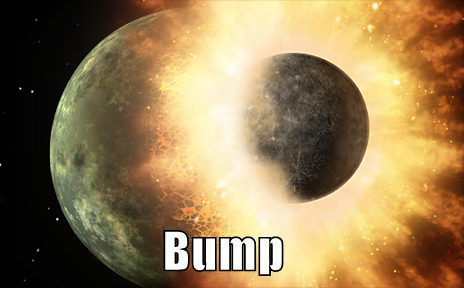Blind groper wrote:When people start asking "why", I get a bit sour on it. I have great respect for science, and a small level of contempt for philosophy. Most philosophy seems to me to be an artifact of human cerebral deficiencies. There is no 'why'. There is only 'how', which is the domain of science.
"Why" is only one of the questions that can be answered via philosophies. Philosophy has various aspects, including "epistemology" (how we know what we know -- the nature of knowledge), and there is "metaphysics" which deals with first principles and abstract concepts such as "being," "knowing," "cause", etc. Then there is "axiology" which is the study of values and value judgments, and of course "logic."
I think many complaints about philosophy stem from the view of it that it is somehow divorced from reality or deals with a world that doesn't really exist. Like when people refer to philosophy as something that isn't expected to bear any resemblance to real life. The thing is, a good philosophy will harmonize with and explain reality in some way, or some aspects of reality or some aspects of real human behavior. If a philosophy isn't useful, then it's a bad philosophy. And, of course, some philosophies do turn out to be demonstrably wrong or incorrect.
Blind groper wrote:
People ask how can anything exist at all. Easy. Things may not exist at all, if we average the totality of existence.
That doesn't make it easy, actually. The average of existence and nonexistence is what? What is the "average of the totality of existence?" Do you have any experiential basis for this? Is there even such a thing as "nonexistence?" Have you seen any "nothing" with which to average it out with existence? Where is that "nothing" and how much "nothing" is out there?
Blind groper wrote:
It is like the ripples on a pond. If the 'up' ripples are given positive values, and the 'down' ripples are given negative values, the total overall displacement of pond water is zero. Yet the ripples exist.
Yes, and the troughs exist, and the peaks exist - you are averaging something, all of which exists. The trick would be to find some actual nonexistence with which to average or offset the existence. One may just as well say that there is no such thing as "nothing" or "nonexistence." There just "is" what "is" and it always will be. The ripples merely change the form of that "is." In the end, the smeared out density of matter will approach 100% entropy, and that will be as close to nothing as we can get, but it wouldn't be nothing, nor would it be the average of nothing and something - it would just be the most smeared out and homogeneous something that we can have.
Blind groper wrote:
In the same way, if we have a multiverse, and everything in that multiverse is given a value of positive something for matter, energy etc., and a negative value for antimatter, anti-energy etc., the final total value may be zero. So nothing exists. This is not philosophy. It is basic maths.
Show your work.
One - we don't know that there is a multiverse, so that's a big "if." A huge "if."
We also don't know that there is the same amount of antimatter as there is matter. Our universe's mass is mostly matter, so far as we have observed. There is a comparatively small amount of antimatter.
So, while your basic maths are basic, they assume a state of affairs that has not been shown to exist -- that matter and antimatter are equal, which observations so far have shown they are not, and you've attempted to allow for that by suggesting a multiverse (presumably where another universe exists that has mostly antimatter and a little bit of matter to "offset" or average out with our universe - that kind of thing) -- but there is no empirical evidence that there is a multiverse.
And, the maths really aren't that basic. What you've described, if you could actually do the maths -- i.e. if you could write out the theoretical physics for it -- would earn you a Nobel prize in physics and put you alongside Copernicus, Galileo, Newton, Einstein, Heisenberg, Hawking and Feynman in the world of theoretical physics.
EDIT -- and I would add that the collision of antimatter and matter don't produce "nothing." Such collisions produce large amounts of energy, and matter and energy may be converted to and from each other. Energy is not "nothing." The matter is not destroyed -- it is only changed in form. Nobody has shown how to destroy matter/energy -- even with the collision of antimatter and matter -- it's only a "change in form."




